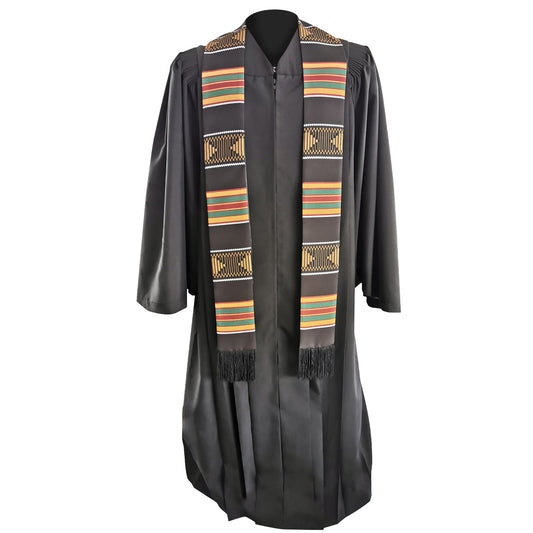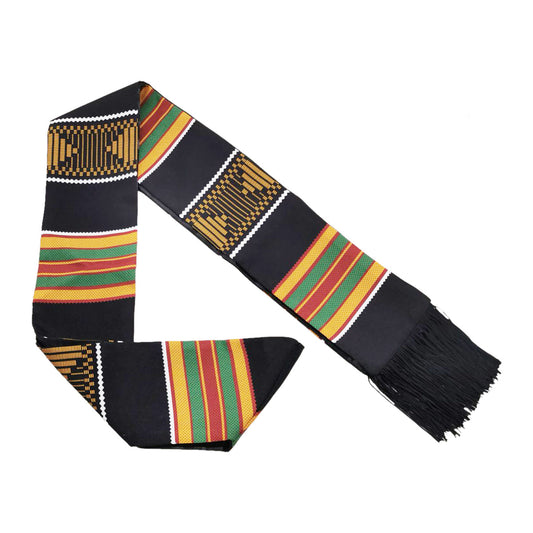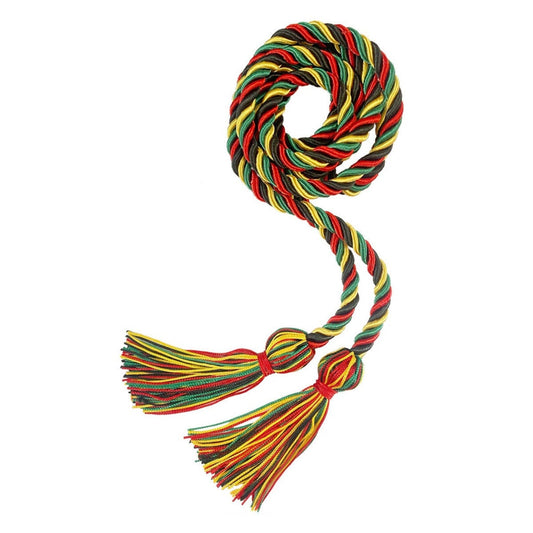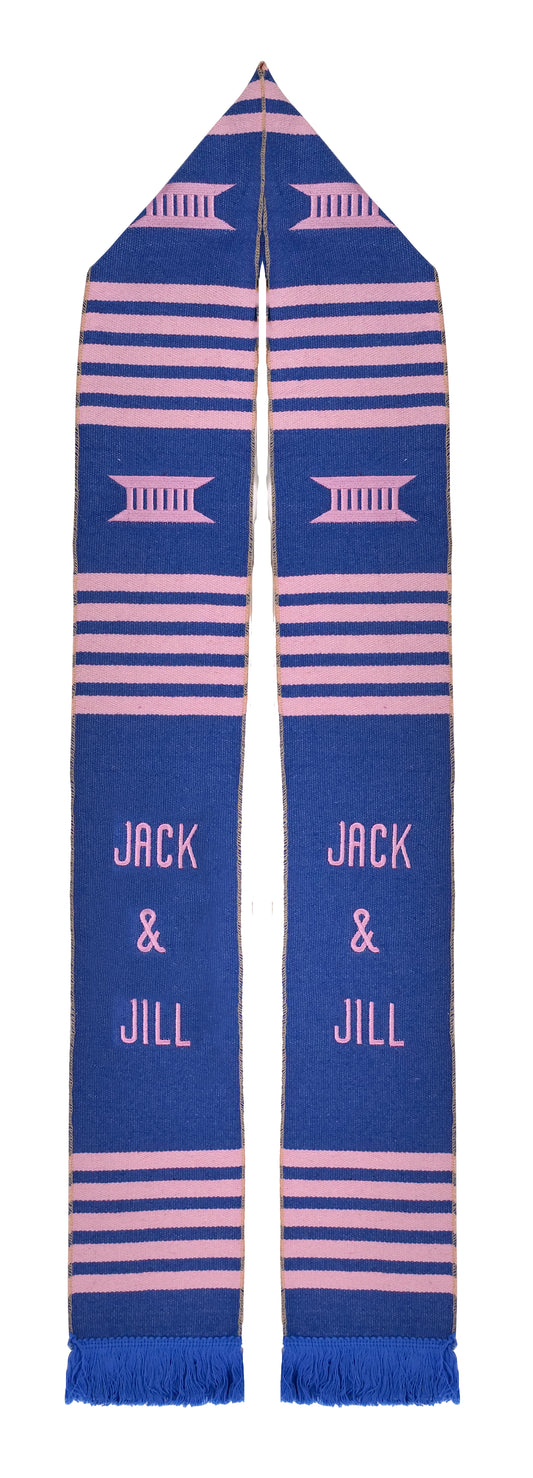Collection: African Cloth Kente Graduation Stoles - Premium Kente Stoles
-
Custom Kente Stoles
Regular price List price: $29.00 USDRegular priceUnit price / per -
Graduation Stole Shadowbox Frame
Regular price List price: $19.95 USDRegular priceUnit price / per -
Kente Graduation Kente Stole, Handwoven Kente Sash Cloth
Regular price List price: $19.95 USDRegular price -
Class of 2024/2025 Graduation Kente Stole, Handwoven Kente Sash Cloth
Regular price $19.95 USDRegular priceUnit price / per$34.95 USDSale price $19.95 USDSale -
Christian Cross Graduation Kente Stole, Handwoven Kente Clergy Usher Cloth
Regular price $19.95 USDRegular price$34.95 USDSale price $19.95 USDAs low as As low as: $8.95 USDUnit price / perSale -
Black Grads Matter Handwoven Kente Cloth Graduation Stole
Regular price $19.95 USDRegular priceUnit price / per$34.95 USDSale price $19.95 USDSale -
Black Student Union Graduation Kente Stole, Handwoven Kente Sash Cloth
Regular price $19.95 USDRegular price$34.95 USDSale price $19.95 USDAs low as As low as: $8.95 USDUnit price / perSale -
Ready to Customize Graduation Kente Stole, Handwoven Kente Sash Cloth
Regular price $19.95 USDRegular price$34.95 USDSale price $19.95 USDAs low as As low as: $8.95 USDUnit price / perSale -
Black Girl Magic Graduation Kente Stole, Handwoven Kente Sash Cloth
Regular price $19.95 USDRegular price$34.95 USDSale price $19.95 USDAs low as As low as: $8.95 USDUnit price / perSale -
Kente Graduation Stole/Sash
4 ReviewsRegular price List price: $24.95 USDRegular price -
Kente Graduation Tassel
Regular price List price: $3.95 USDRegular price -
Kente Honor Cord
Regular price List price: $4.95 USDRegular price -
Purple Kente Graduation Kente Stole, Handwoven Kente Sash Cloth
Regular price List price: $19.95 USDRegular priceUnit price / per -
Red Kente Graduation Kente Stole, Handwoven Kente Sash Cloth
Regular price List price: $19.95 USDRegular priceUnit price / per -
Maroon Kente Graduation Kente Stole, Handwoven Kente Sash Cloth
Regular price List price: $19.95 USDRegular priceUnit price / per -
Jack and Jill Kente Graduation Stole – Handwoven Keepsake of Legacy and Honor
Regular price $19.95 USDRegular priceUnit price / per$34.95 USDSale price $19.95 USDSale
Collection: African Cloth Kente Graduation Stoles - Premium Kente Stoles
"Vibrant Cultural Triumph: African Cloth Kente Graduation Stoles"
Introducing our exquisite African Cloth Kente Graduation Stoles, a perfect blend of rich cultural heritage and academic achievement. Crafted with utmost precision and attention to detail, these stoles encapsulate the vibrant and symbolic essence of the Kente cloth, a revered textile from West Africa.
Each Kente Graduation Stole is meticulously woven using traditional methods passed down through generations. The brilliant array of colors and intricate patterns tell unique stories and represent diverse meanings within the African culture. The vibrant hues, such as gold, green, red, blue, and black, signify various virtues, emotions, and life experiences, making each stole a personalized and cherished item for any graduate.
The stoles feature a luxurious texture that epitomizes the essence of celebration and accomplishment. Adorned with traditional geometric patterns, these stoles exude elegance and grace, making them an eye-catching accessory to any graduation ensemble. They serve as a profound symbol of a graduate's journey and the triumphs achieved throughout their academic pursuits.
Beyond its visual appeal, wearing the African Cloth Kente Graduation Stole holds deeper significance. It serves as a proud representation of cultural identity, fostering a sense of connection to African roots and the resilience of its people. It is a tribute to the ancestors who have paved the way for future generations to succeed, a homage to the heritage that continues to inspire and empower.
Whether worn during commencement ceremonies or as a keepsake to cherish for a lifetime, our Kente Graduation Stoles symbolize a momentous milestone that deserves to be honored in a distinctive and meaningful manner. Celebrate your achievement with a touch of tradition, culture, and elegance with our African Cloth Kente Graduation Stoles.
The history of Kente stoles is deeply intertwined with the rich cultural heritage of the Ashanti people of Ghana, West Africa. Kente is a traditional handwoven fabric that holds great significance in Ashanti society and has become an iconic symbol of African culture and identity.
The origins of Kente can be traced back to the 17th century when the Ashanti people began weaving these intricate fabrics. Legend has it that two Ashanti brothers, Kurugu and Ameyaw, learned the art of weaving by observing a spider spinning its web. They were so inspired by the spider's intricate patterns that they replicated them using fibers from silk cotton and raffia palm trees.
Initially, Kente cloth was exclusively reserved for Ashanti royalty and nobility, and its use was associated with sacred and ceremonial events, such as royal coronations and important rituals. The colors and patterns of Kente held symbolic meanings, with each design representing specific themes, proverbs, historical events, or cultural beliefs.
Over time, the demand for Kente cloth expanded beyond the Ashanti kingdom, and it became a symbol of prestige and cultural pride for other ethnic groups in Ghana and neighboring regions. As the popularity of Kente grew, it found its way into various aspects of life, including clothing, accessories, and ceremonial objects.
During colonial times, Kente faced a decline as Western textiles gained prominence. However, in the mid-20th century, there was a resurgence of interest in traditional African culture and identity during the African independence movements. Kente cloth experienced a revival as a symbol of resistance against colonial oppression and a celebration of African heritage.
In the 1950s and 1960s, prominent African leaders, including Ghana's first President Kwame Nkrumah, embraced Kente as a symbol of national pride and unity. Kente became a prominent feature in diplomatic events and official ceremonies, elevating its status as a cultural icon both within Africa and on the global stage.
Today, Kente is not only an essential part of Ghanaian cultural identity but also an integral part of African diaspora culture worldwide. It is commonly used in various celebrations, including graduations, weddings, and cultural festivals. Kente stoles, in particular, have become a popular accessory for graduation ceremonies, representing academic achievements and connecting graduates with their African heritage.
The art of Kente weaving has been passed down through generations of skilled weavers, and traditional methods are still employed to create these exquisite fabrics. Contemporary weavers also experiment with new designs and color combinations, adding a modern touch to this ancient craft while preserving its historical and cultural significance.
For further information, visit our FAQs page or contact us via email or phone at: 1-855-719-4723


























